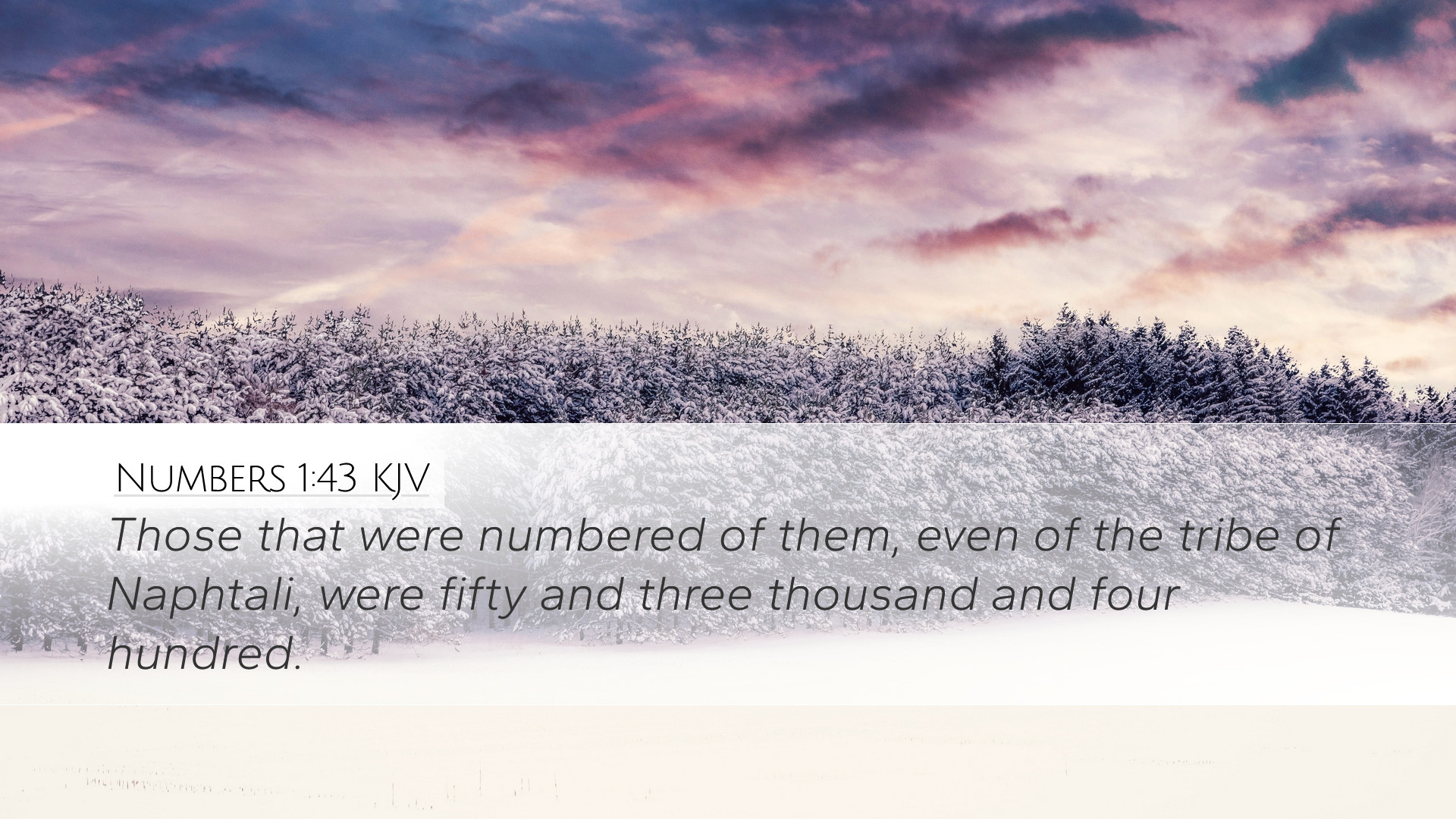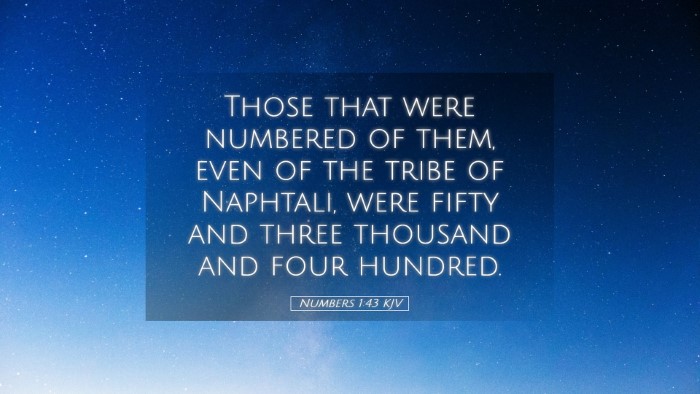Commentary on Numbers 1:43
Overview of Numbers 1:43
This verse is part of the census taken in the wilderness, highlighting the number of men eligible for military service among the tribes of Israel. It provides insight into the structure, organization, and counting of God's chosen people as they prepared to enter the Promised Land.
Insights from Matthew Henry
Matthew Henry emphasizes the importance of the census as a demonstration of God's care for His people. He notes that "the number of the children of Israel, by their fathers' houses, was counted and recorded, showing that God has a particular eye upon His people." The record serves as a reminder of God's faithfulness and promises to Abraham, Isaac, and Jacob.
Henry also highlights the spiritual implication of counting the warriors of Israel: "They were not only a people but a host prepared for battle," pointing to the idea that God's people are equipped and prepared for spiritual warfare.
Insights from Albert Barnes
Albert Barnes provides a detailed analysis of the verse, noting the specific mention of those numbered from the tribe of Ephraim. He provides context by stating that this tribe, together with others, formed the military backbone of Israel. Barnes elaborates that these numbers are not merely statistical but serve "to assert the Lord's provision and governance over the nation."
Moreover, Barnes reflects on the symbolic meaning of the number count, suggesting that "the organization of Israel into tribes reflects God's perfect order and plan for His people."
Insights from Adam Clarke
Adam Clarke delves into the significance of the term "fathers' houses," pointing out that this phrase underscores the importance of family lineage and the tribal structure within Israel. Clarke writes, "Each tribe is representative of its heritage, symbolizing the continuity of God's promise through generations."
Clarke also makes a practical application of the text, urging leaders and congregations to recognize the importance of community and family in the life of believers. He asserts that the strength of the community is vital for fulfilling God's mission.
Theological Insights
The act of numbering the people serves multiple theological purposes:
- Divine Order: The counting reflects God's divine order and structure within His covenant community.
- Identity and Heritage: Each tribe's count reinforces their identity and heritage, vital for understanding God's promises.
- Preparedness: The census illustrates the need for spiritual and physical preparedness for the challenges ahead.
Applications for Today’s Church
This verse encourages modern Christians to consider several points:
- Recognizing God’s Sovereignty: Just as God organized and counted the tribes, we must acknowledge His sovereignty over the church and our lives.
- Valuing Community: The census reminds us of the beauty of community. Each member has a role and purpose, which is foundational for effective ministry.
- Preparation for Spiritual Warfare: As God's people, we are called to be prepared for spiritual battles, relying on God’s strength and strategy, akin to the military preparation of the Israelites.
Conclusion
Numbers 1:43 not only records a historical event but also encapsulates profound truths about God's relationship with His people. It encourages a reflection on identity, organization, and preparedness within the body of Christ. The insights gleaned from the commentaries of Henry, Barnes, and Clarke inspire pastors, students, theologians, and scholars alike to delve deeper into understanding God's work in history and its implications for the present-day church community.


